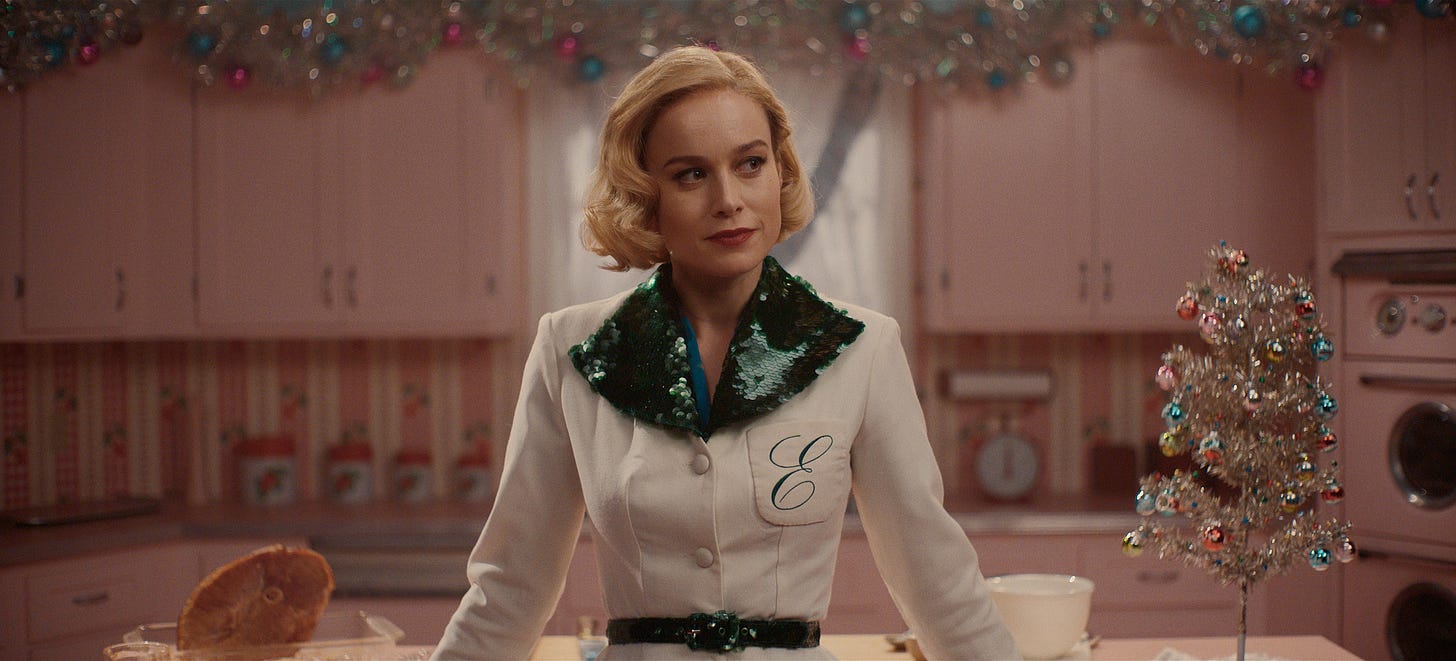Something to watch tonight: Thursday 11 January
Lessons in Chemistry (Eisenberg, 2023)
When I started this newsletter all those months ago I thought I would be recommending more television than I have been. After all, we watch enough of it.
But this newsletter comes out every weekday and television series are l o n g.
I could do what a number of my colleagues do, which is review a show based on advanced access to the first three episodes. That’s fair enough, we’ve all got to eat, but my (up to now) unspoken mantra for Funerals & Snakes is “It’s better to be right than to be first” and I find it really hard to recommend something until I know how it ends.
Because endings are important.
Lessons in Chemistry is a case in point. If I had come to you with a recommendation after the first three episodes, I would be describing a different show to the one containing all eight. (We also waited until all the episodes were binge-able rather than watching weekly when it dropped back in October and November, and smashed it out over three nights.)
Based on a phenomenally successful debut novel by Bonnie Garmus, Lessons is the story of a young chemist in 1950s California who is determined to overcome the patriarchal obstacles that are strewn across her path but who finds that her solutions are a surprise even to her.
Brie Larsen (also an executive producer) plays Elizabeth Zott, a gifted researcher who was unable to complete her PhD for plot reasons and who is now a humble lab technician watching considerably less able male chemists fumble around mostly cluelessly.
Over the following ten years or so, we see her fall in love, experience terrible loss, have a child she thought she never wanted, and begin a career as a proto-feminist daytime TV cooking show host.
It’s a shiny, fantasy 50s, with a grounding in real life but not much more grit than that, but the word “satisfying” could have been invented to describe it. Lessons is excellent, tasteful TV drama with well-conceived characters and a nicely spun story and a mystery at its core.
If I had written about it after episode three or so, I would have said that it relies a lot on the kind of narrative coincidences that you can (perhaps) get away with more easily in a novel. By episode eight, I realised that those coincidences weren’t flaws, they were the theme of the show.
(I shouldn’t say “realised” as if I had some great personal insight. It’s not a mystery – the show pretty much comes right out and says it.)



